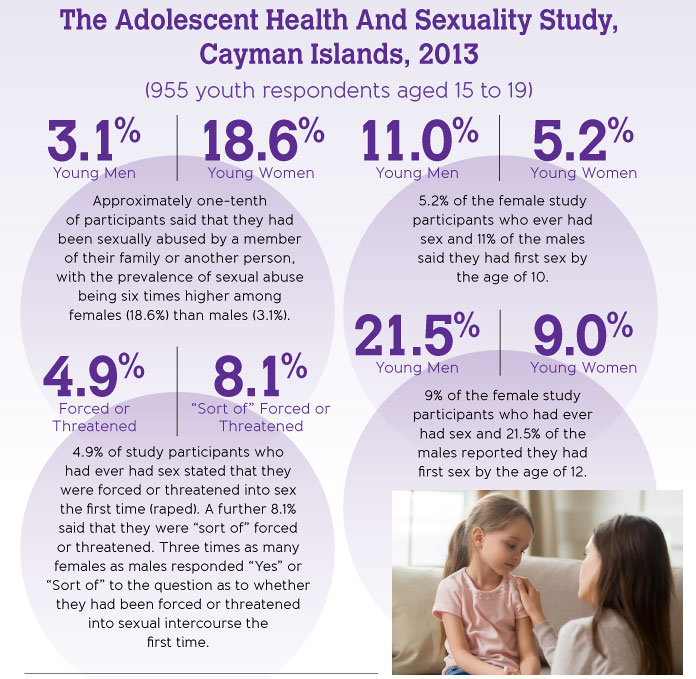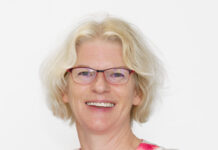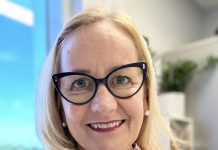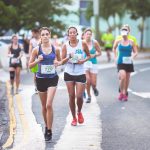Protection Starts Here (PSH) is a Cayman Islands Red Cross (CIRC) project launched in 2012 to raise awareness of child sexual abuse in the Cayman Islands.
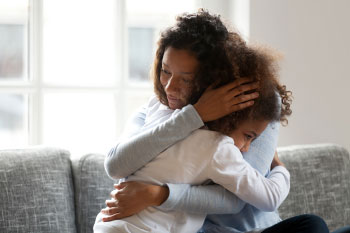 The project is run in partnership with the Health Services Authority, the Family Resource Centre, the Employee Assistance Programme, the Ministry of Education, the Royal Cayman Islands Police Service, Sands Creative Studios and Hedge Funds Care.
The project is run in partnership with the Health Services Authority, the Family Resource Centre, the Employee Assistance Programme, the Ministry of Education, the Royal Cayman Islands Police Service, Sands Creative Studios and Hedge Funds Care.
The catalyst for the project was the 2002 Cayman Islands Red Cross’s ‘Together We Can’ HIV and AIDS peer education programme which was part of a regional effort to educate and empower young people about HIV and AIDS, and also on broader topics such as sex, sexuality and gender-related issues.
“The Caribbean region has the second highest rate of HIV prevalence in the world after sub-Saharan Africa,” explained Carolina Ferreira, deputy director of the Cayman Islands Red Cross. “Furthermore, in the Caribbean young women between the ages of 15 and 24 are two and a half times more likely to contract the virus than young men their same age.
There are many social and cultural factors which are making our young people, specifically our young women, especially vulnerable to contracting the virus. One such factor is child sexual abuse.”
‘Together We Can’ yielded many years of training for young people, and the work undertaken with peer educators also unveiled trends and practices which were consistent with global trends. That included men in their 20s to 40s picking up new girlfriends near schools and at fast food restaurants on their lunch breaks; young women exchanging sex for goods/money from older men; young women encouraged by family to enter into relationships with older men who could ‘provide’ for the family; and young men being ‘initiated’ into sex by older women, with the community failing to see this as rape.
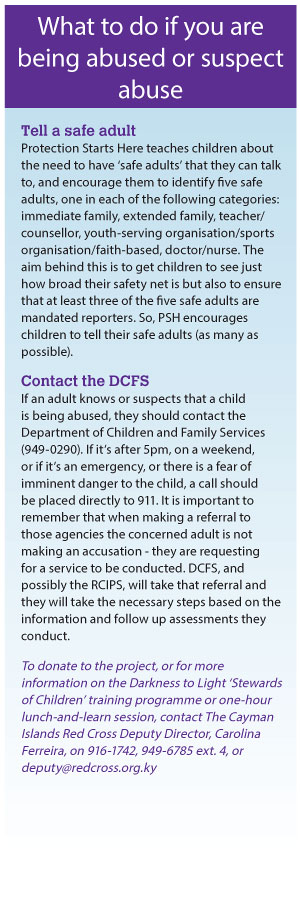 “The thing that makes child sexual abuse so difficult to contend with is the fact that in 90% of the cases the perpetrator is known to the child and the family,” said Ferreira.
“The thing that makes child sexual abuse so difficult to contend with is the fact that in 90% of the cases the perpetrator is known to the child and the family,” said Ferreira.
“Perpetrators groom not only the children but also the adults entrusted to keeping them safe as a way to not only gain access to the child but also to manipulate other adults into not believing the child should they disclose.”
Trauma such as childhood sexual abuse can manifest itself in all sorts of issues over a person’s lifetime, said Ferreira, such as unemployability, sexually transmitted infections, unwanted pregnancies, drug abuse, bullying, aggression and crime.
“Even by 2012 we had not readily spoken about child sexual abuse in Cayman. In fact, as a nation we had become experts at protecting perpetrators, not our children. We had found ways to speak around the issue for fear of being offensive,” explained Ferreira. “Yet we stood fast in our belief that it is child sexual abuse that should offend us, not speaking of its existence in a realistic manner which had for so long been deemed ‘inappropriate in polite company’.
“Thus, it was time to put child sexual abuse prevention back where it belonged: out of the hands of our children and back on the shoulders of our adults.”
The CIRC invited all non-governmental, governmental and private sector organisations who had a vested interest in ensuring young people’s safety and well-being to participate in what was originally meant to be a public service announcement campaign aimed at bringing this issue to the national spotlight.
Discussions however led to the question ‘then what?’
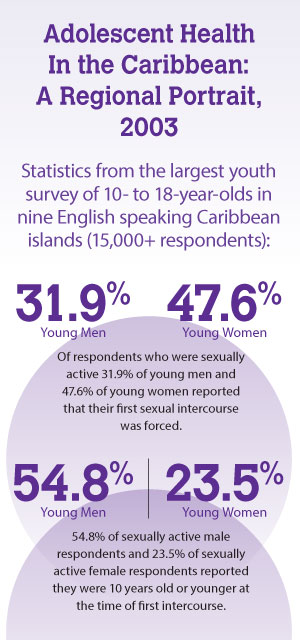 “It was this question that essentially marked the start of the Protection Starts Here project,” said Ferreira. “The Employee Assistance Programme, Health Services Authority, Ministry of Education, Ben Hud’s Wisdom Campaign and Sands Creative Studios are all founding members of the working group who have stuck with the project since the start, and in 2017 the Royal Cayman Islands Police Service’s Family Support Unit joined.
“It was this question that essentially marked the start of the Protection Starts Here project,” said Ferreira. “The Employee Assistance Programme, Health Services Authority, Ministry of Education, Ben Hud’s Wisdom Campaign and Sands Creative Studios are all founding members of the working group who have stuck with the project since the start, and in 2017 the Royal Cayman Islands Police Service’s Family Support Unit joined.
Financial support from Hedge Funds Care/ Help For Children started in 2013 and from that time we have hit the ground running.”
All members of the working group are professionals and experts within their field and aim to address gaps in information, awareness, education, training and even services while pushing for change at a national level.
Protection Starts Here outputs:
- Public service announcements on child sexual abuse in Cayman used on social media and by counterparts in the wider Caribbean.
- Local documentary ‘Unspeakable: Confronting Child Sexual Abuse in the Cayman Islands’. Unspeakable was featured at CayFilm and the Unlike Film Festival in Cayman, and was a central part of the PSH presentations at the 34th International Symposium on Child Abuse and Neglect, hosted by the National Child Advocacy Center in Alabama in March 2018 and the XXII International Congress on Child Abuse and Neglect hosted by the International Society for the Prevention of Child Abuse and Neglect in September 2018.
- Free DVD on child sexual abuse, touching safety, age appropriate sex and sexuality information for children, healthy sexuality vs. sexualisation, and mandatory reporting for lay persons and professionals intended to be an educational resource for parents, new professionals and new arrivals alike.
- A free thrice monthly Darkness to Light ‘Stewards of Children: 5 Steps to Child Sexual Abuse Prevention’ training programme.
- A one-hour lunch-and-learn session on child sexual abuse in Cayman.
- ‘Seal of Protection’ initiative – a designation that youth serving organisations can attain by meeting international basic minimum standards for child safety. For example, having a documented Safe Environment and Mandatory Reporting Policy; a Code of Conduct; documented and robust screening and hiring practices for volunteers and staff; mandating child safety training (e.g. Darkness to Light); and ensuring a suitable number of personnel are first aid trained.
- Policy Development Workshop – free biannual policy development workshop utilising international best practices programme to help organisations develop their child protection policies, practices and procedures.
- ‘Girls Will’ empowerment conference for girls in 2014.
- ‘My Body is My Own’ child safety lesson for children ages 3 to 6 using Bobo the Green Turtle and Teedee the Blue Iguana – local characters developed by Ben Hud and Mari Abe of Sands Creative Studios. The lesson and materials are available free to teachers and includes lesson plans for each age group, the 8-minute local animation, activity booklet and individual poster for each child, classroom posters, pre- and post-lesson assessment, as well as a USB drive with all the materials to ensure that schools and early education centres can give continuity to the lesson if funding for printing the materials is not available in the future. Booklets and posters are available to teachers upon completion of the short (1 hour) training. To date, more than 100 teachers in 54 classrooms have been trained and more than 1,000 booklets have been disseminated for the children.


